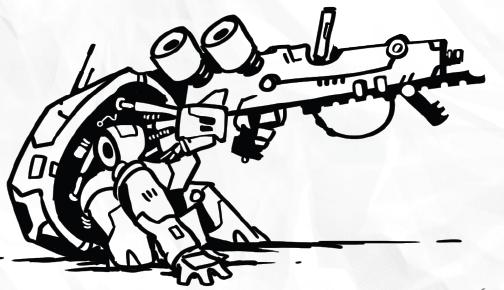
This question has come up a lot in various Drunkens & Dragons videos: the OP video, the Last Flight of the Red Sword playthrough video, and other videos undoubtedly.
It’s more of a deep thinking GM philosophy question regarding game design than a problem I’m having with my particular game. More it’s just fun to think about:
Do we as gamers want damage dealing (DPS is the video game term for it, Damage Per Second) to be the primary thing we value in our characters? Certainly it’s the best tool for solving combat encounters. There’s a big monster with a super cannon growing out of it. If it hits you, you’ll all die! Well if you can hose it with enough damage that you kill it in a single turn everyone will cheer and lavish you with praise. That certainly rewards damage as the primary trait we want in our characters. It’s always more fun to hear that we lop the heads off of enemies or split them in half than it is to hear that our shots bounce off or leave tiny cuts and bruises that the enemy shrugs off. High damage seems to make for better stories.
Yet high damage characters seem to have to sacrifice so much in order to get there that they become pretty boring. You’re usually the combatiest of the combaty classes in order to get some special ability, some bioform that gives you a bonus to damage which is usually some squat, square-jawed type being–which encourages a grim, silent, scornful type character (which just isn’t fun to play or be around). Conan is fun to read or watch in passive media, but not a particularly pleasant guy to hang with in a dynamic storytelling game. All their gear ends up being focused on dishing more and more damage, which means less colorful stuff that could be used in clever ways. Their action economy tends to be optimized into whatever combo gives the best damage yield each turn. Move, Aim, Fire rinse and repeat until the adventure is over.
As I write this a few solutions come to mind: the simplest is to take damage off the table as a distinguisher between different characters. Make all the weapons in the game do enough damage (either by increasing all weapon effort or decreasing enemy hearts) so that a character who builds themselves all around damage just wastes most of it in overkill and most typically built characters can get satisfying damage results every turn. Encounter design would feature lots of enemies that could each go down in a round no matter if the supercannon character hits them or if it’s the team medic.
I like this idea. Just thinking about it combats feel like they’d be more dynamic because there’d be more badguys running around. Characters would want to do other things other than do lots of damage because there’d be pressure to move, to manipulate the battlefield.
It can’t be that easy. Guys check my work here. Would cutting the number of hearts enemies have cause players to stop fixating on damage dealing? Is there some obvious thing that power players will do in response that will just move the problem somewhere else? Are there other good solutions people have?
I just want to see games move out of this Max Damage rut that we seem to be in without having to try to talk people out of making fun characters, or having to design encounters that are less fun to play and stories that are less fun to tell.
Let me know what you think!
